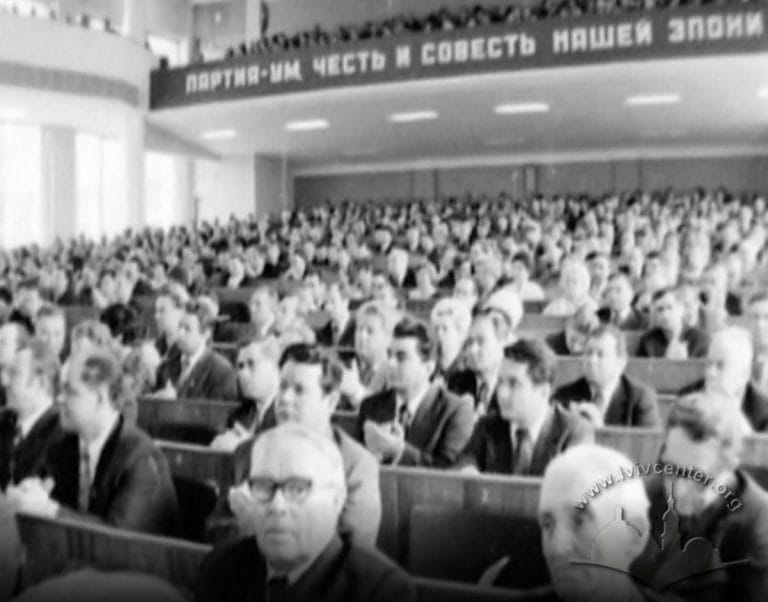Resolution of the Secretariat of the Central Committee of the Communist Party of Ukraine “On the Use of Official Position in the Preparation of a Candidate’s Dissertation and Scientific Publications by Deputy Minister […] of the Ukrainian SSR, N,” June 27, 1975
An inspection has revealed that com. N, while serving as the second secretary of the […] oblast party committee and as the deputy minister of the […] of the Ukrainian SSR, improperly utilized his official position for personal academic advancement. He engaged employees from the […] oblast agricultural department and the oblast statistical office to assist in preparing his dissertation. Furthermore, he exerted influence over officially subordinate individuals, coercing them to include him as a co-author in articles and books. Over the past five years, the total volume of printed materials bearing his name reached 245 pages—thirteen times the norm for an active researcher. Additionally, com. N failed to pay the full Party contributions from the fees and bonuses he received. The investigation also found that com. N falsely claimed to have passed his German exam at the […] State University, which was reportedly completed on a date when he was actually on a business trip in Cherkasy.
In his professional conduct, com. N exhibited rudeness and a tendency to shout at colleagues. During the inspection, he displayed insincerity and provided misleading and false explanations regarding his actions.
- For these transgressions, including the misuse of his position to further his academic ambitions and his behavior during the inspection, com. N is to receive a severe reprimand with a note in his record card and is to be dismissed from his position as Deputy Minister […] of the Ukrainian SSR.
- The inspection materials from the Party Commission and the agricultural department of the Central Committee of the Communist Party of Ukraine are to be forwarded to the Ukrainian Agricultural Academy for a review of the legitimacy of the degree awarded to com. N as a Candidate of Economic Sciences.
- The Minister of […] of the Ukrainian SSR and the secretary of the ministry’s Party committee are to be formally admonished for their inadequate efforts in educating management personnel and their failure to exercise proper oversight of their activities.



The case of a second secretary of an oblast committee, later a deputy minister, reveals a pattern of misconduct, though none directly related to his official duties. According to the ruling, the official had long demonstrated an ambition for academic recognition. This ambition was easily realized due to his high position and, as sources suggest, the authoritarian leadership style.
Inspired by the ease with which he could expand his scientific legacy, the high-ranking official seemingly lost self-restraint and exceeded the bounds of propriety. The “involvement of a number of employees in the preparation” of his dissertation, reportedly occurring during his tenure in the oblast committee, evolved after its defense into coercing “officially subordinate individuals” to list him as a co-author in their publications. Unsurprisingly, this allowed N. to showcase a level of productivity exceeding by more than tenfold the expectations for genuine scientists.
In addition to abusing his office for academic gain, the official faced accusations of deceiving the Party by underpaying Party fees, being insincere during inspections, and demonstrating an unethical leadership style characterized by rudeness and shouting.
The punishment for his unprecedented yet dubious academic achievements was relatively lenient. He received a severe reprimand with a note in his record card and was dismissed from his position. However, this outcome reflected the interplay of Party discipline and the nomenklatura system. The decision about his future was made by the Secretariat of the Communist Party of Ukraine Central Committee, rather than the head of the Council of Ministers. Despite the reprimand and dismissal—significant consequences within the Party system—the official retained his Party membership. Though his dismissal resulted in a lower-ranking position, the possibility of rehabilitation remained. Demonstrating “deep awareness of his guilt,” performing well in his new role, or appealing to former patrons could eventually “whitewash” his record.
The resolution’s concluding paragraph underscores the Soviet system of pervasive oversight. It criticized the minister and the secretary of the ministry’s Party committee for failing to exercise adequate control over their subordinate’s activities.